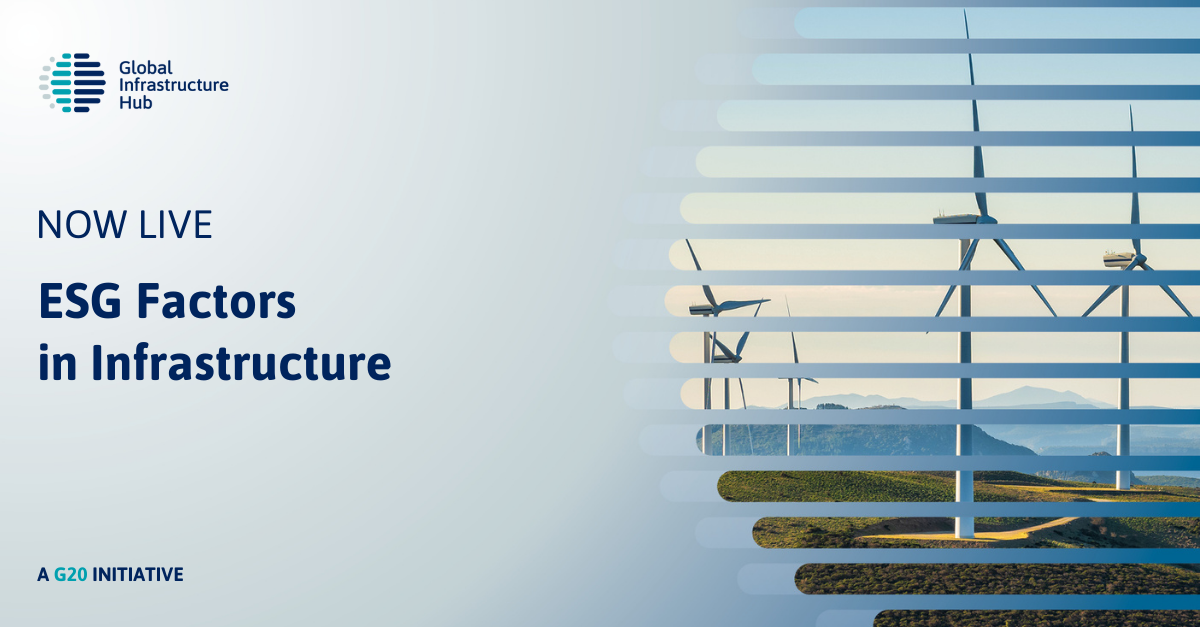GRESB and the Global Infrastructure Hub (GI Hub) are pleased to share the release of “Environmental, Social and Governance (ESG) factors in infrastructure,” an ESG-focused supplement to the Infrastructure Monitor, GI Hub’s flagship publication on the state of investment in infrastructure.
The ESG supplement provides an enhanced understanding of the current state of ESG in infrastructure, spotlighting the progress made as well as identifying areas where ESG policies, practices, and disclosures require further improvement.
Key findings include:
- ESG policies and practices improved in infrastructure assets in 2023 across environmental, social, and governance pillars, with governance showing the most progress
- 60% of infrastructure assets have a net-zero target, but only a third consist of a science-based target or are aligned with net-zero setting frameworks
- Net-zero targets tend to be location-based, focusing on Scope 1 and 2 emissions, with Europe leading in Scope 3 and market-based targeting
- Most infrastructure assets systematically assess the financial impact of physical climate risks, with over two-thirds identifying material impacts
- Transition risks are widely recognized, with policy and legal risks being the most acknowledged and likely to have a material financial impact
- 92% of infrastructure assets have an individual responsible for Diversity, Equity, and Inclusion (DEI) issues
This supplement forms part of the GI Hub’s Infrastructure Monitor report, which explores global trends in private investment in infrastructure. The report provides governments and investors with data insights that help them direct investment where it is needed.
Access the ESG supplement and full report here.
GRESB and GI Hub announced a strategic partnership in August 2022, formalizing an ongoing collaboration between the two organizations to engage a wider array of stakeholders, improve the quality and availability of ESG data and insights and continue building the evidence base for investing in sustainable and equitable infrastructure.
